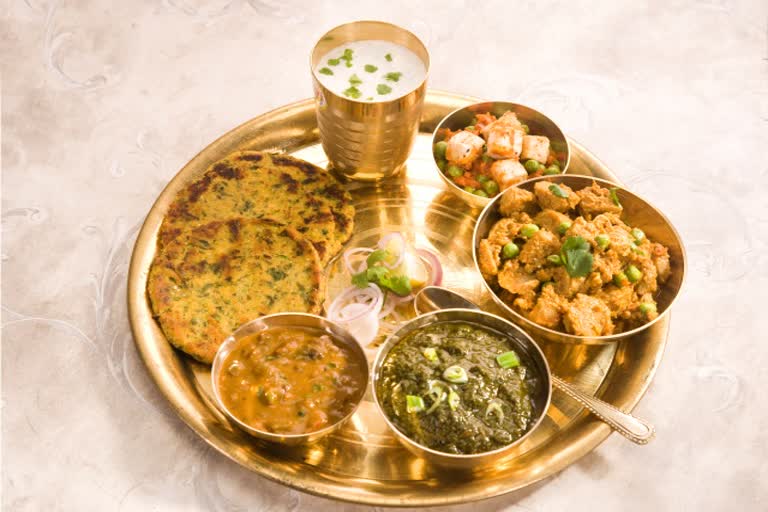Ayurveda recognizes the mind, the body, and its spirit as interdependent constituents that make up the human body. It divides all people into possessing one among these three broad categories of Dosha-' Vata (ether/air), Pitta (fire), and Kapha (water/earth). Following the theories of Ayurveda, we all have one dominant dosha-- a type of bodily humor. An individual's unique ratio of Kapha, Vata, and Pitta is said to define their Ayurvedic constitution-- their personal roadmap to achieve optimal health, and when out of balance, the cause of several diseases.
This theory of the 'Tridosha' is the substance of all diagnostic treatments in Ayurveda. Vata binds Akasha and Vayu and ensures unhindered body movement. Breathing and excretion, food absorption and cell growth and regeneration; muscle movement, and balance-- all of this is governed by the Vata Dosha. Pitta binds Agni and Jal and is the principal regulator of body alkalinity. It is primarily responsible for generating vision, color, and warmth in the body. Kapha on the other hand is the energy that binds Prithvi and Jal. It is the force that maintains homeostasis, constitutes the structural framework in our body even while forming several protective coverings of different organs.
Ayurveda enlists a total of 8 Prakritis based on the knowledge that there is no 'one size fits all' approach in health. Each individual has his/her own dominant dosha or a combination of two or three of these elemental forces. In Ayurveda, this divergence from Prakruti, Vikruti, is the cause of all diseases. Keeping a check on your specific tridosha can help prevent and also treat these diseases. You can treat these individual doshas as follows:
- Vata represents movement and all challenges such as constipation, insomnia, lower back pain, cough, etc. should include warm milk, butter, cereals, fruits, and warm drinks like hot water in their diet. Spices like cumin, ginger, and cloves, and a healthy Vata-balanced diet are essential to keep all diseases at bay. A warm glass of milk garnished with turmeric and cardamom, and sleep before 11 p.m. is advisable.
- Pitta Dosha is the energy of digestion and metabolism in the body. A Pitta-dominant individual can experience health issues related to heat and acidity in the body. Short temperedness, acid reflux, restlessness, and rashes are common ailments in such people. Those with the Pitta Dosha should meditate and take food in moderate amounts. Consumption of refreshing food like salads, cold milk, and fruits during summer is a must. They must consume grains, vegetables, and cereals in abundance and avoid oily, spicy, and fermented food. Engaging in a couple of quiet hours meditating and contemplating is a good practice.
- Kapha is the heaviest of the three doshas. When out of balance, a Kapha-dominant individual can experience problems that are a consequence of the accumulation of fat. Obesity, respiratory congestion, poor diet, a feeling of heaviness, swelling, and depression can become crucial ailments in individuals with the Kapha Dosha. Such individuals are advised to engage in vigorous physical activity, take up warm beverages, and include spices such as cumin, fenugreek, turmeric, and sesame seeds in their diet.
Also read: International Day Of The Midwife 2021
Ayurveda and Yoga in unison can help one achieve a healthy lifestyle-- free of most common diseases. Trying to understand your unique Dosha, and accepting Ayurveda as a way of life can change your life. Well, after all, isn't a healthy mind and body our ultimate goal after all?
(IANSlife)



